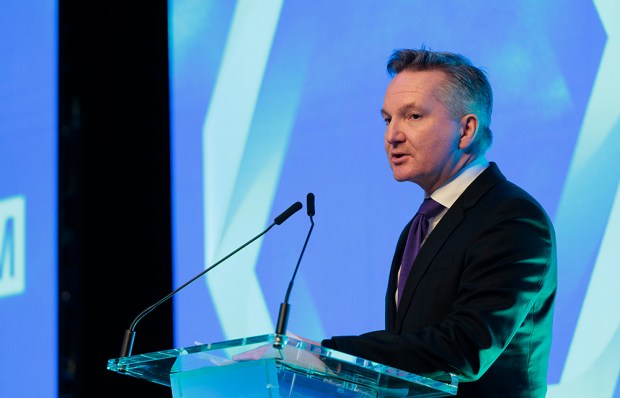It’s the customary corporate cop-out. Big business these days is more risk-averse than entrepreneurial. So the business lobby groups have greeted the Morrison government with the inevitable demand for long-term policy to be put ahead of short-term politicking. They want political stability and policy certainty to encourage the business investment that is required for economic growth. Apart from the reality that they shun (other than issuing motherhood press releases) the political fight to achieve this favourable investment climate, the only way ScoMo’s government will be able to survive to deliver this corporate Elysium is if its ‘politicking’ is good enough to lift it from its dismal current standing in the polls to win the next election. To do so, its only option is to clearly distinguish itself from Labor on major issues like energy policy, IR, and hopefully even compulsory superannuation and company tax – exactly the opposite to the search for policy consensus that business thinks it needs. The business community’s demand for political stability and policy certainty means sacrificing what is really needed for whatever your opponents will permit; the Senate’s corporate tax intransigence, despite the overwhelming economic case for the gradual reductions of the company tax rate from 30 per cent to 25 per cent by 2026, should have scotched this nonsense. And there can be no real long-term policy certainty when governments must face an election every three years. It’s a risk that companies cannot avoid – and that governments should not even try to protect them from.
All that business can reasonably wish for is that the political party that suits it best should have a resounding electoral victory, big enough to ensure it has a mandate (and the Senate numbers) to implement its agenda. But next year the Coalition cannot even scrape home again, let alone have a big win, if it competes as a sort of Labor-lite; it must not only stand up for its principles (which are far more friendly to business than Labor’s could ever be) but also attack in an effective confrontational way Labor’s policies and their consequences. The business community, with its disdain for politicking (and fear of Labor retribution in office) will not join this battle, no matter how vital its outcome for their shareholders – unlike the banks that successfully campaigned for Menzies in his 1949 return to power. At least the coal industry is putting its money where its mouth, and its best interests, are, with its excellent TV ad campaign on the overseas boom in HELE coal-fired power stations (fired by high quality Australian coal) in contrast to their total absence in Australia despite our energy crisis. But this is an exception and involves defying the BHP-led embargo preventing the Minerals Council of Australia from directly campaigning for the coal industry against Green/lefty critics.
Energy policy, far from heading towards the business community’s preferred worst-of-all-worlds consensus, will inevitably end up an election battleground. Labor’s first priority of meeting emissions targets has led to huge price rises, job losses and blackouts. In striking contrast, the coalition’s new Energy Minister Angus Taylor’s primary aim is ‘to reduce power prices while keeping the lights on’ and doing so by encouraging the retention of existing generating capacity along with commercially viable renewables. But the business lobbies still promote the National Energy Guarantee as ‘a workable solution to the trilemma of ensuring reliable energy supply, bringing in new investment to drive affordability and meeting our international emissions commitments’ (magically reconciling these conflicting objectives). They warn against the possible unintended consequences of Taylor’s threat to intervene in the energy marketplace to correct the ill-considered past governmental interventions that have so corrupted the market, but they welcome his acceptance of the ACCC’s proposal to give teeth to its capacity to oversee an industry whose price gouging means it needs to re-establish its credibility. But Taylor is aware that the trust of Australians in the capacity of governments and politicians to deliver affordable and reliable energy has been eroded. If Taylor fails to come up with the right answers to recapture that trust before the middle of next year, he and the government will be looking for new jobs.
Got something to add? Join the discussion and comment below.
Get 10 issues for just $10
Subscribe to The Spectator Australia today for the next 10 magazine issues, plus full online access, for just $10.
You might disagree with half of it, but you’ll enjoy reading all of it. Try your first month for free, then just $2 a week for the remainder of your first year.














Comments
Don't miss out
Join the conversation with other Spectator Australia readers. Subscribe to leave a comment.
SUBSCRIBEAlready a subscriber? Log in